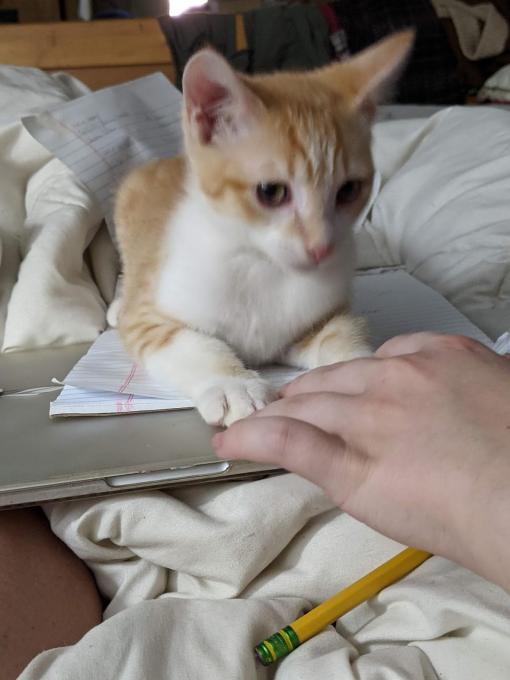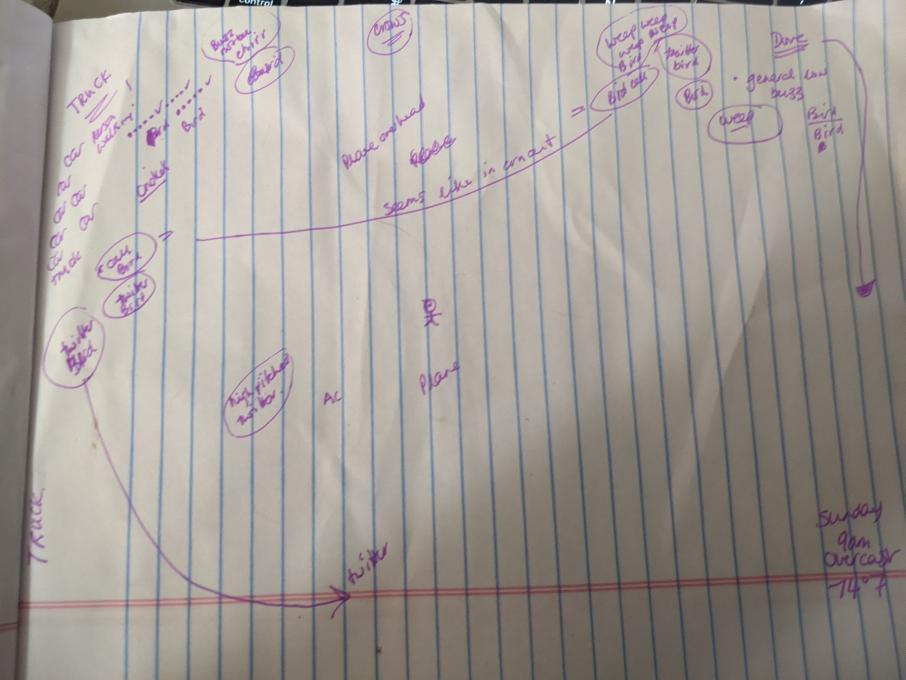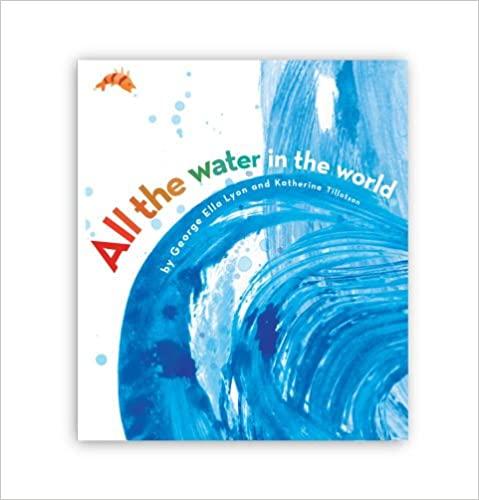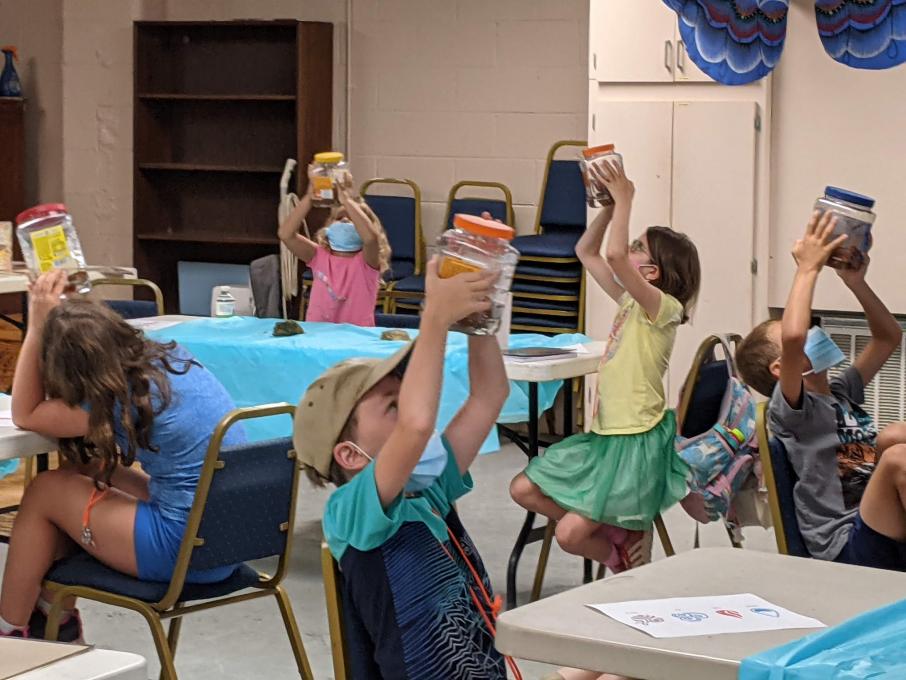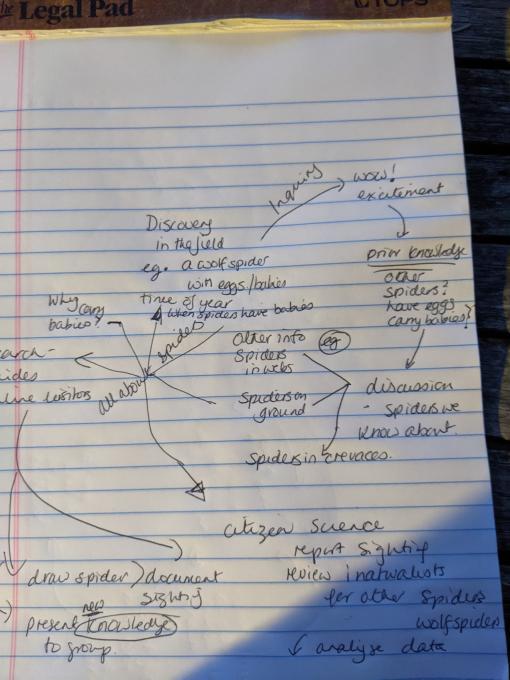Sue
Forum Replies Created
Viewing 14 posts - 1 through 14 (of 14 total)
-
SueParticipantI love the idea of open-ended questions. I have always liked to know the names of things and gain comfort and a sense of accomplishment from knowing. However, at a naturalist class that I took once, the teacher said that often when a thing is named the learning stops. This so resonated with me There are so many possible open-ended questions that lead to deeper and deeper connections and other questions and so on. I have become interested in moths lately as I have begun to take more and more close-up pictures. I find moths beautiful and wondered why butterflies got more coverage than moths, especially since I found out moths out-number butterflies 15 to 1. This leads to all sorts of questions about diet, habitat, etc. etc. and ultimately human's perceptions of moths as pests vs. butterflies. If I had stopped with just identifying the moths I had discovered I would have denied myself an insight into the connections between the human and natural world (it's all politics) and learning more about moth's place in the ecology of the world. With our Junior Naturalists we try hard not to focus only on identification - although knowing the names of things creates familiarity and confidence. We always strive to move beyond to ask other deeper questions and to make connections.
-
SueParticipantThis was identified in a day by an expert as a Tobacco Budworm Moth which can open up a world of possibilities regarding teaching. The identification linked me to a distribution map for this moth, and to a world of information about moths in general. The Project Noah entry connected me to moth watchers all over the world. Engaging with the website helped me gain more confidence.
-
SueParticipant
 I submitted this photo to Project Noah as part of National Moth Week (July 17-25)..
I submitted this photo to Project Noah as part of National Moth Week (July 17-25).. -
SueParticipantSomehow I lost the rest of what I wrote - perhaps kitty editing. Since I am passionate about nature and learning, I don't find it hard to be catalysts for students to observe and wonder. As a naturalist, I always relate to the students as co-learners since I am not a scientist or expert in anything!

-
SueParticipantI think for all of us slowing down and observing is a challenge. Even in our Junior Naturalists, there is an impetus to walk and discover - not stop and discover. Building in moments where we all stop and observe phenomena that maybe we wouldn't normally - a bird sound map, observations in the butterfly garden, prairie, woodlands where we just stop for 5 minutes and sit still would be an excellent practice and habit to develop.
-
SueParticipantI did this at 9 am on an overcast Sunday morning (74 degrees F) in my back garden in Pendleton, SC. Stopping and listening is so important, yet so hard to do. I think I managed about 7 minutes (in my defense I sat on the wet grass and it was getting unpleasant). I think with our Junior Naturalists it would be a good strategy to make it a game - to see if we could start at 5 minutes and do an extra minute each time we meet - build the skill in a measurable way. I showed my map to my husband which turned out to be a great way to think it through. I wish I knew more bird calls to be more detailed. I was excited when I knew doves and crows, but everything else I tried to have somewhat of a representation of the call. It makes me really want to go back to learning my birdsongs! I did start listening for patterns and possible conversations, that was fun. Having a key ahead of time and thinking about different kinds of bird sounds would be a good strategy. Our neighborhood is way busier than I realized - the amount of traffic, particularly loud personal trucks has grown exponentially over the past few years.

-
SueParticipantI think the practice I need to work on most is crafting experiments/observations and then working on collecting data. I think I will offer the participants in our Junior Naturalist Program some autonomy in choosing a project to work on - althought think I might be most inclined towards BirdSleuth or feeder watch. I really feel that fostering patience and focus would be an excellent practice to build in our participants.
-
SueParticipantI am in the process of Fall programming and this has given me lots to think about. We try and do all these things. I model wonder, inquiry well (I think) and we talk a lot about being scientists. I am less good at being a good scientist - I have not been trained as a scientist and I find it hard to be focused and patient enough to collect data for an extended period of time. I think it would be a good experience for me and the Junior Naturalists to pick a CS Project as thread through our meetings this fall. Much of our focus is on our Natural Heritage Trail which is South Carolina based, we are on a university campus, so perhaps there might be a science project we can help with, connecting South Carolina to the global context would be very valuable but we specialize in the local.
-
SueParticipantSeek is wonderful for all ages (I love it for ID ing). I have an android phone and google lens is fantastic!
-
SueParticipantIn our Junior Naturalist After School Program. We have tried the Nature's Notebook Dogwood Project - we had great fun talking about phenology and going out and tracking the progress every time we met (every two weeks) but we never sent in the information - there was never enough time and that seemed an insurmountable task. I think if we had familiarized the students with the website and used it to illustrate what the plan was and how their collected material would be used by real scientists the last step would have been easier to accomplish. Because we only have an hour and half every two weeks I like to get them out into nature straightaway. So, even though I love the idea of these projects I feel like I have never really had the courage to submit results. Over the past couple of years, I have become increasingly interested in Moths and next week is National Moth Week https://nationalmothweek.org/. I am going to try and set up a light and a sheet at my house on Saturday night and document the moths that visit. They suggest using Project Noah - which I have been playing with today. Their mobile app is being redesigned but I can easily upload from my computer. Project Noah also has connections to other projects, too many to list but check them out here. https://www.projectnoah.org/missions
-
SueParticipant
-
SueParticipantWe just finished camp at the Botanical Garden where I work. During this camp we covered some new territory for me. I have recently gained a more scientifically trained co-worker (I am a historian by formal training and a naturalist by self/informal training) and she is much better at scientific experiment - I am more let's go and look and see what we find . We divided the camp into 4 themes water, earth, fire and wind. On the water day we talked about where water was on earth - in rivers, oceans, ponds etc. . We then set out to follow the path of a rain drop through the Garden - on the way we talked about normal water flow through our creek//pond//creek, what happens when there's too much water, how water interacts with the land - looking at erosion and deposits of soil. At snack time we read a book called All the Water in the World and discussed how water that we drink is water the dinosaurs may have drunk. After snack we looked in the stream for macro-invertebrates and talked about stream health and macro-invertebrates as indicators of stream health. All of these activities I would say are confirmation activities. My co-worker introduced a more structured inquiry on the earth day by asking the students how soil was made. The experiment was filling a jar with rocks and water. They made predictions about what would happen if they shook the jar - they started to make soil. We could take this further by mapping the stream bed, measuring water flow, making connections between flow and landforms - how features are created by deposition or erosion.


-
SueParticipantWhen I think of science in high school I think of failing to get it "right". Science was memorizing information, I remember very little curiosity or fascination involved!in reply to: Virtual Educator Retreat: Intro to Inquiry #826513
-
SueParticipantI work in a Botanical Garden and so do not have students for much sustained time, and therefore little time to develop much of the processes outlined here in an extensive way. However, as we explore outside (I have 3-5-year-olds to adults in a variety of programs) we are constantly coming upon natural treasures that spark curiosity, prompt questions, lead us to think about what we know about something already, and how what we have discovered fits with that prior knowledge. Our discovery often prompts questions and leads us to further research into what we have found and how it connects to other aspects of the natural world. I am very careful to always present myself as a co-learner with the group; as a naturalist, you are almost by definition interested in nature, but far from an "expert" in any aspect of that realm. When I first started in my position as an educator at the Garden I knew very little about the natural world. My supervisor knew about inquiry-based learning and I found it so incredibly foreign. I was so totally bought up in the teacher gives knowledge to the pupil model that it was hard for me to even conceive of how to formulate questions. I love the emphasis in these writings of inquiry as something we do naturally and the freedom from structure/step-by-step process and the search for the "correct" answer which totally destroyed any love of science I may have had in high school.
 in reply to: Virtual Educator Retreat: Intro to Inquiry #826512
in reply to: Virtual Educator Retreat: Intro to Inquiry #826512
Viewing 14 posts - 1 through 14 (of 14 total)
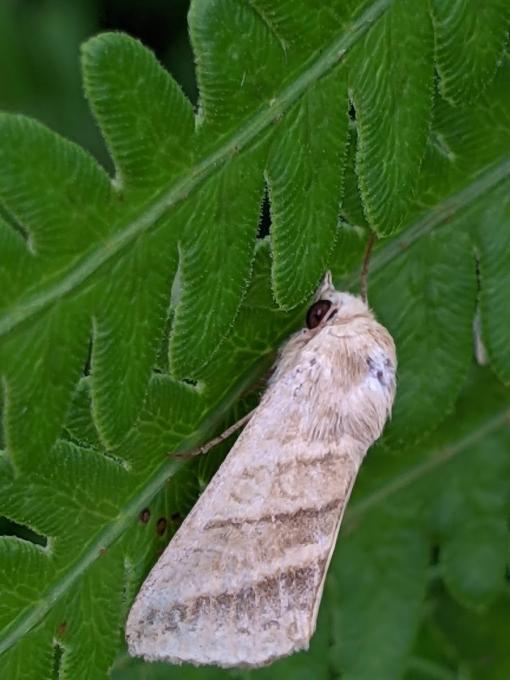 I submitted this photo to Project Noah as part of National Moth Week (July 17-25)..
I submitted this photo to Project Noah as part of National Moth Week (July 17-25).. 